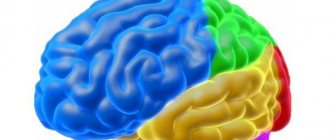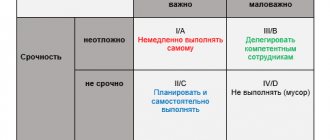The concept of “logic” originated in Ancient Greece and literally means “the art of reasoning.” It was then that people first began to get involved in logic games. At the same time, philosophers and entire schools began to appear, which began to become sophisticated in proving their own theories through chains of logical deductions.
Logical thinking is not given to a person at birth, but develops as an integral property of the individual. Man is a social being, and in the social order the influence of logic on significant processes in the interests of power elites is seriously reduced. If logic had more weight, then humanity would set more adequate goals for itself. And all wars would stop in the world, there would be fewer disadvantaged people. The paradox of logic lies in its versatility. Despite the existence of formalized laws, almost every person can find loopholes for himself and justify his behavior.
Logic: history
Logic as a science began to exist because of the works of Aristotle. Ancient thinker in the 4th century BC. e. asked the question “How does a person make decisions?” After studying the thought process, the philosopher laid the foundations and forms for such a concept as logic.
Read also: Hematologist during pregnancy
Before Aristotle's scientific works, logic was part of philosophy. After the work of the ancient scientist and other thinkers, the new concept acquired a complex form of knowledge. The analysis carried out allowed such a concept as logic to become an independent science, and thus its formal form appeared.
The main task of science is the dispassionate study of received information, thoughts and reasoning. Other forms of studying thinking lack the dispassionate and cold analysis of data.
Logic - what is it?
This term has ancient Greek roots. It is derived from the ancient Greek word “logos”, which is understood as word, reasoning, thought, meaning or reason. The simplest definition of logic is the science of correct thinking and common sense. It originated around the 5th century. BC. thanks to the works of the philosopher and thinker Aristotle, who is considered the founder of traditional logic.
Logics
There are other interpretations:
- Logic is also called the science of laws, methods and forms of thinking, referring it to one of the branches of philosophy.
- Human logic is rationality and a certain sequence of actions and conclusions.
- The definition is also identified with the concept of the internal regularity of certain phenomena and processes. That is, existing natural processes and human emotions.
Components of logical thinking
The use of logical thinking is often associated with quickly solving logic tasks and passing tests to determine the level of intellectual development (IQ). But this direction is associated to a greater extent with bringing mental operations to automatism, which is a very insignificant part of how logic can be useful to a person.
The ability to think logically combines many skills in the use of various mental actions and includes:
- Knowledge of the theoretical foundations of logic.
- The ability to correctly perform such mental operations as: classification, specification, generalization, comparison, analogy and others.
- Confident use of key forms of thinking: concept, judgment, inference.
- The ability to argue your thoughts in accordance with the laws of logic.
- The ability to quickly and effectively solve complex logical problems (both educational and applied).
Of course, such operations of thinking using logic as definition, classification and categorization, proof, refutation, inference, conclusion and many others are used by every person in his mental activity. But we use them unconsciously and often with errors, without a clear idea of the depth and complexity of those mental actions that make up even the most elementary act of thinking. And if you want your logical thinking to be truly correct and rigorous, you need to learn this specifically and purposefully.
Clear thinking makes you a better person.
Questionable methods of persuasion, such as "criticizing" a candidate's views while presenting a less than ideal image, are very often used, particularly in election campaigns. There is no doubt that they are effective in some situations, but this should not be a reason to choose them over good and clear argumentation. On the contrary, this is why people need logical thinking now more than ever before.
Found a violation? Report content
About the forms of logical thinking. Tools for intellectual activity
Read also: Can people change?
The study of forms of logical thinking is carried out by the science of the same name, part of general philosophy - logic. If we skip the boring academic aspects, there are three basic forms in total.
Concept
The concept is a certain definition of an object, phenomenon, indicating its most significant characteristics and features. A concept is the quintessence of a phenomenon, reflecting its unique properties and those qualities that distinguish an object from others. People know why an apple is an apple and not a pear and how these fruits are different. Or they understand what a car, a tree, a table, a clock is. The list goes on.
The enormous importance of this logical form of thinking is revealed when working with abstract phenomena. That is, those that do not have a material, real expression and equivalent. They cannot be touched or seen, but they are there. These are ideal matters: life, death, love, eternity and others. Not necessarily philosophical categories. For example, warm, cold. They cannot be seen, but they can be experienced experimentally. These phenomena are somewhere between abstraction and concreteness. With the help of the concept, you can introduce a variety of phenomena into circulation and work with them as if they really exist. Even if they are ideal and have no real equivalent.
From this we can conclude: logical thinking is aimed at the maximum degree of abstraction. Roughly speaking, it doesn't matter what color the apple is. It is important that this is a fruit, round in shape, with a certain taste, growing on a tree called an apple tree and the like. Only essential information. Specifics are used as needed, if necessary for the purposes of the study.
Concepts can be worked with as individual objects. They can be summarized and compared. Comparisons are usually made using visual material. To build relationships, so-called Euler circles are used. Concepts are compared by volume. A group of relationships is possible.
Law of contradiction
A statement and its negation cannot be true at the same time.
What's the point
If one judgment affirms something, and another denies the same thing about the same object at the same time and in the same respect, then they cannot be true at the same time.
For example, two propositions - “the cat is black” and “the cat is white” - cannot be true at the same time if we are talking about the same cat, at the same time and in the same respect. That is, the color of the cat is compared with the same palette.
Examples of violation
“This ginger cat left black hairs all over the carpet.” And from childhood - “Shut your mouth and eat.”
How to apply it in life
The most difficult thing is to identify the contradiction. The phrase “I didn’t have a childhood as a child” does not violate the law of contradiction, but “made an oral report in writing” does. So, the main thing is to understand whether there is a contradiction or a play on words.
Object and subject of logic
Like any science, logic has an object and subject of study. The object of logic is human thinking - the display of various phenomena and processes in his thoughts, as well as the construction of conclusions based on existing knowledge about the external world. It should be noted here that thinking is an object not only for logic, but also for a large number of other sciences.
The subject of logic is a system of laws of correct thinking. Essentially, logic studies one aspect of cognitive thinking - the laws and principles leading to the construction of consistent conclusions. And since philosophy studies all aspects of knowledge of the world, logic is a philosophical science.
Development of logic in adults - why is it needed?
On the pages of our blog or the BrainApps project, we will never tire of calling for the development of logic, but how to do this correctly and effectively? It’s worth starting with the understanding that logic is not only a science, but also an integral system of thinking. If you learn to make the right conclusions, you will be able to achieve significantly greater results in all areas of your life.
Logic developed empirically, which means “by experience.” It is because of this that a person who has never read the works of Aristotle and Herodotus can operate with generally accepted laws of logic. Every day we witness events, draw our own conclusions, and learn the opinions of other people. The result is an understanding of the “cause and effect” cycle.
There are certain logical axioms that are the basis of the thinking of any developed person.
Time has a direction, is linear and irreversible, that is, it is, in fact, a vector. From an early age, children are taught the concepts of “yesterday,” “today,” and “tomorrow.” Based on this, the perception of the past, future and present is formed.
Cause-effect is another logical chain that children learn at a tender age.
Then the measure of the smaller and the larger becomes recognizable.
Contiguity of concepts and their mutual exclusivity. For example, a person cannot be both asleep and awake at the same time. It is incompatible to be sick and healthy, and so on.
The inductive method of logic is inference from the particular to the general, and the deductive method is from the general to the particular with the obligatory reservation on logical laws. An example of deduction - autumn has come - the foliage has turned yellow and fallen off. An example of induction - the leaves turned yellow and fell off, summer has passed, therefore autumn has come.
A sequence of actions to obtain a certain expected result (in other words, an algorithm).
Only by mastering these elementary logical schemes can a person have developed logical thinking.
Books and textbooks on logic
On this page we have selected useful books and textbooks that will help you deepen your knowledge of logic and logical thinking:
- "Applied Logic".
Nikolai Nikolaevich Nepeyvoda; - "Textbook of Logic".
Georgy Ivanovich Chelpanov; - "Logic: lecture notes."
Dmitry Shadrin; - "Logics.
Training course" (educational and methodological complex). Dmitry Alekseevich Gusev; - “Logic for Lawyers” (collection of problems).
HELL. Getmanova; - "Logics.
Textbook for law schools." IN AND. Kirillov, A.A.Starchenko - "Logics.
Textbook for high school." Vinogradov S.N., Kuzmin A.F. - "Logics.
Textbook for humanities faculties." A.A.Ivin - "Logics".
Ivanov E.A. - And others.
Is logic an innate skill or an acquired one?
The ability to think logically and analyze what is happening is acquired, which is confirmed by psychologists and other experts. Not a single person was born already able to do logical thinking.
The simplest type of thinking is figurative-logical, and it appears by the age of 1.5 years. Then the child begins to do a basic analysis of what is happening, gradually distinguishing what is important and what is secondary.
Skills of this kind are known as empirical skills - that is, developed on the basis of personal experience. Alas, usually we all, in addition to our own developments, also receive many social attitudes, which are not always correct and healthy. Absorbing them without analyzing the situation on their own, a person gradually loses critical thinking.
An interesting nuance. If you want to improve your logic, start doing basic tasks - coming up with new words and rhymes. All this will have a stimulating effect.
Anyone who wants to really achieve the level of abstraction. Just think about how many times you reason about non-existent phenomena - after all, in this process your logical apparatus is actively working.
If you make it a rule to regularly train to develop logic, then over time you will be able to reach heights, even if you were previously very far from logical reasoning. The main thing is to have a sincere desire.
Violation of the laws of logic
When the laws of logic are violated, logical errors occur. There are three main types of logical errors:
- paralogisms are errors resulting from an unintentional violation of the laws of logic;
- sophisms are logical errors that arise as a result of deliberate violation of the laws of logic;
- Paradoxes are errors that arise not due to a violation of the laws of logic, but due to the ambiguity of certain principles.
Sophistry is the main tool in sophistry. They are used to confuse the interlocutor, lead him to the wrong conclusions, or make him look stupid in front of others. Paradoxes can arise, in particular, when the quantitative and qualitative characteristics of objects and phenomena are mixed or when implicit conditions are present. In such a case, reasoning that appears logically correct may lead to conclusions that contradict reality or other logically correct reasoning.
An example is the Heap Paradox. Its essence is as follows: if you remove 1 pebble from a pile of gravel, the pile will remain a pile, but if you continue this process, then at some point the pile will cease to exist. The contradiction here is that removing one (any!) stone should not lead to the disappearance of the pile. And yet it disappears precisely because one stone is removed from it. The reason for this paradox is that the relationship between the quantitative and qualitative characteristics of the heap is not formulated.
Another example of a logical fallacy is Zeno’s famous aporia about Achilles, who will never catch up with the tortoise. The paradox condition is specially formulated in such a way as to exclude from consideration the point of the path at which the athlete overtakes the turtle. As a result, the proof that he cannot do this does not contradict the laws of logic. The error lies in the very formulation of the problem, in which the condition “On the segment to point X” is implicitly present.
Good logic is an effective tool of persuasion
The art of persuasion is called rhetoric. Rhetoric, like logic, was previously an important part of the humanities curriculum. Unfortunately, neither logic nor rhetoric are any longer necessary subjects. But at the same time, rhetoric includes almost all forms of persuasion, with the possible exception of bribes, extortion and physical violence. This includes, for example, appealing to emotions, provocative images or clever wordplay. There is no doubt that these approaches can be persuasive, but good persuasive reasoning is also worth looking at. No one is saying that good arguments will always win over clever rhetoric: humans are not Vulcans like Mr. Spock. However, in the long run, good arguments will always lead you to success.
Türkiye will change entry rules for tourists: electronic forms are now required
Mothers with COVID pass on milk antibodies to their babies that neutralize the virus
Dog - counterculture of the 60s: which era is close to the signs of the Chinese horoscope
Types of logic
Thanks to surviving historical documents, it is known for certain that logic as a science about laws and forms of thinking originated approximately 2500 years ago. Since then, it has undergone certain changes, which led to the identification of three main types of logic:
- Traditional or formal logic, which is also called Aristotelian.
- Symbolic or mathematical.
- Dialectical.
Formal logic
The most ancient section of philosophy is considered to be formal, formal-factual or discrete logic, the father of which was the famous Aristotle. He viewed this science as the possibility of perceiving and operating with formal facts and connections between them without taking into account the content. Finding out what problems formal logic solves, we note that it checks the correctness of reasoning in the modern world. It is important to abstract from the specifics and take into account only the general form of the judgment or question.
A simple example is a statement of fact: “it’s warm and dry outside, so I’ll go for a walk.” This type of thinking is inherent in every person, because when seeing an interlocutor for the first time, an individual evaluates his appearance and notices other features, putting the puzzle together into a single picture. If what you see does not meet accepted standards, then the pattern breaks.
Formal logic
Mathematical logic
At the beginning of the 19th century. traditional formal theoretical logic is replenished with an arsenal of mathematical methods using artificial languages. This is how symbolic or modern logic, as it is commonly called, was formed. The mathematical approach has brought the reasoning ability of scientists in various fields of science to a new level,
This model simplifies the process of cognition by replacing words of familiar language, which can carry ambiguity and imprecision, with formal symbols. Many problems that mathematical logic studies cannot be formulated in conventional verbal expressions using known methods. Often such a science is more broadly classified as metalogic or metamathematics.
Mathematical logic
Dialectical logic
The German philosopher Hegel and the followers of Marxist materialist theory founded the so-called dialectical logic, the basis for the development of which was discrete logic. It is based on a method of guiding not only the form, but also the content of phenomena, objects and processes. That is, such a science of cognitive activity can consider not individual opposites, but their connection and similarity with each other. This section of philosophy has its own laws and principles:
- comprehensiveness of consideration;
- objectivity;
- unity of history and logic;
- analysis from abstract to concrete and others.
Dialectical logic
Law of Sufficient Reason
In order to be valid, any thought (thesis) must be proven by some arguments, and these arguments must be sufficient to support the original thought, that is, it must follow from them.
What's the point
Remember what the presumption of innocence is? It is based on the law of sufficient reason. The principle of presumption of innocence dictates that a person be considered innocent, even if he testifies against himself, until his guilt is reliably proven by any facts. In other words, a guilty plea does not guarantee that a person actually committed a crime, but evidence and evidence may well. That is, an admission of guilt is not a sufficient basis, but the facts and evidence pointing to the criminal are sufficient.
Example of a violation
“Don’t give me a bad mark. I have read the entire textbook and may have some answer.” The conclusion does not follow from the basis: the student could read the entire textbook, but it does not follow from this that he will be able to answer anything.
Knowing whether an argument is valid or not is a valuable skill.
Logic is essentially the study of the validity of argumentation. All people use reasoning to reach conclusions that are useful to them. If your car won't start, you conclude that the battery may not be working. That's why you test the battery. If it works, you conclude that the problem must be somewhere else, most likely the starter. That's why you check the starter. And so on. This example of reasoning is simple, but sometimes the chains of reasoning can become quite complex and confusing. If you practice generating good arguments and spotting bad ones, you can develop a skill that will be useful in almost every area of life. This will help you find the truth and recognize lies.
Symbolic logic is fun
Learning basic symbolic logic is akin to learning a new language, but the vocabulary is very small and there are very few grammatical rules. You'll learn to do a wide variety of things with the new symbols: you'll use them to analyze the logic of ordinary sentences, test arguments for validity, and create proofs for complex arguments whose validity is not obvious. The exercises that will help you become more proficient at this branch of logic look like puzzles, so if you like Sudoku, you'll likely love logic.
My tongue is my enemy. What phrases can you use to spot a liar partner?
Sweet sandwiches for a family tea party: preparing a dessert from cookies and biscuits
Romantic ideology: why is “love like in a movie” dangerous?
Logic: why is it needed?
The main purpose of such correct thinking as logic is a tool for searching, transmitting, understanding, and proving information. It allows a person to work with verified data in studying or searching for something.
Application in tasks:
- Cognition. Knowledge in disciplines is logically interconnected. Methods of obtaining information can be divided into two types, namely the theoretical and experimental way.
- Resolution of disputes. Quite often controversial issues arise in life. In them you need to make a choice between two opposite values. Logical analysis helps determine truth and falsehood. An example is a trial in court, where two parties present claims to each other for some reason. The judge, based on such a form of thinking as formal logic and the law, determines the truth, resolving the conflict.
- Productive communication. A person, when talking with others, tries to logically express his thoughts, expecting the same from his interlocutor. Here logic is a way of transmitting information.
Finding answers requires adherence to the rules, norms and principles of such a type of thinking as formal or mathematical logic.
Thank you for reading the article to the end and do not forget to share the information on social networks, because it is not difficult for you, but it is pleasant for us.
Why do illogical people need logic?
Nobody likes people who live only by logic. These are usually calculating egoists who do not know emotions and feelings, love, mercy. Cold calculation and chess analysis of all moves in advance does not provide any guarantees, because logical laws also have their own errors. You can often hear: “Logic is powerless here.” For example, when a hopelessly ill person is healed. Or, despite the terrible diagnoses, the couple has a baby.
If we imagine a logical world for a moment, then most likely there would be no place in it for cancer patients, beggars and those who do not work. A person who is useless to society would simply be destroyed. That is why logic is not the only support for a person. In addition to it, there are also emotions and feelings, morality and spiritual traditions. However, a reasonable compromise can be reached. Developing logical thinking is still necessary if you want to learn to think effectively.
“All your friends are caterpillars.” What is logic and how does it save you from madness?
Estimated reading time: 25 min.
“All caterpillars eat cabbage. All my friends eat cabbage. Therefore, all my friends are caterpillars." What's wrong with this conclusion? Dmitry Gusev, Doctor of Philosophy, Professor at MPGU, RANEPA, Moscow University, talks about this and more. S. Yu. Witte.
Hello, dear viewers and listeners. My name is Dmitry Gusev. I am a teacher at Moscow State Pedagogical University (MPGU), RANEPA and Moscow University. S. Yu. Witte.
Explanation:
We begin our lecture, the topic of which is “When two and two are not four, and a liar tells the truth, or Why do we need to study logic.” There are three forms of thinking, in philosophy they are called three levels of rational knowledge of the world, three stages of rational knowledge. In logic there are three forms of thinking: concept, judgment and inference. These are the three forms of thinking.
What is a concept? A concept is a form of thinking that reflects or represents an object in the surrounding world or its sign. This is what is represented in our language by a word or phrase. In the world around us there is a huge number of objects and signs of objects, and we call each sign somehow, somehow. We say: this is a fish, this is a textbook, this is whiteness, this is courage, this is an astronaut, this is a planet. That's all: man, astronaut, planet, courage, textbook, whiteness - these are all examples of concepts. Concepts are names of things in the world around us or names of signs of the world around us. This is what the concept is. A concept is like a logical atom. The concept is the basis of thinking. Sometimes they say: human thinking is conceptual, that is, based on these concepts.
If several concepts are combined with each other, they will form a judgment. Judgment is the second form of thinking. Let's take two concepts. The concept of “crucian carp” and the concept of “fish”. Let's connect them together: all crucian carp are fish. Now that's a judgment. You can put it another way: some fish are crucian carp. This is another example of a connection. And this: all crucian carp are fish, some people are athletes, all planets are not stars - these are examples of judgments. Judgment is the second form of thinking.
And finally, if several judgments are combined with each other so that a new judgment follows from the original judgments, this will be called an inference. An example of an inference is what we have already discussed today. The first proposition: all planets move, the second: the Earth is a planet, therefore the Earth moves. All this taken together is called inference. Or remember the second example? All children have thinking, adults are not children, which means they do not have thinking. That is, in a conclusion, the conclusion can follow from the premises, either true or false.
So, there are three forms of thinking: concept, judgment and inference. Logic is the science of forms and the laws of correct thinking. What are the laws of thinking? The laws of thinking are such principles or rules, and objective ones... here it is important to emphasize: what does objective mean? Objective means existing on their own, independent of us. Our thinking is structured in such a way that it proceeds in accordance with these laws, with these principles, with these requirements. The laws of logic are objective in the sense that they do not depend on gender, age, historical era, or even level of education. Where do they come from, these laws, these principles of thinking? No one knows. There may be different options here. Either they are laid in the consciousness of a person by God himself, so that a person thinks according to these laws and in accordance with them. Whether they are formed spontaneously in the process of evolution, but that is another question. The main thing is that there are these principles, these laws according to which human thinking flows. And what’s interesting is that a person who has not even studied logic, who is not familiar with it, still, on the whole, spontaneously observes these laws. This is called intuitive logic, which we all master long before we go to school to study. Let's give some example. Let's say this is the situation:
— What do you do when you can’t sleep for a long time?
- Whatever, I usually think.
- Oh, you think it’s great, how long do you count?
- Until three.
- Until three? So few?
- No, sometimes I even count to half past four!
Please note, any person, regardless of gender, age, nationality, what will he say? Why did it turn out to be a ridiculous situation? Why was there a comic effect? Because what will anyone here say? Different meanings are put into the same words, right? Speaking in the language of logic, in this example the first law of logic was violated - the law of identity. A person may not know about the law of identity, may not know how it is violated, but when it is violated, he feels it. He sees it in some kind of mental eye. What does this mean? That he is already using this law. This principle of thinking has somehow been built into his thinking since time immemorial, and now it works in him.
Or, for example, they will tell you: “We’ll leave tomorrow evening at dawn.” You say: “How is this?” And so, we’ll leave tomorrow evening at dawn. He was a young man of advanced age. “It was in January - the fifth of April. It was hot outside - we were numb.” “Alive, healthy, lying in the hospital, I’m fed up, I want to eat. Come visit me - I don’t want to see you.” You say: “Well, this can’t happen. If he is young, then he is not old; if in the evening, then he is certainly not at dawn.” And when you say this, you spontaneously observe the second law of logic - the law of contradiction. Point out its violation. Let’s say we don’t know about this law, but when it is violated, we say: yes, there really is something wrong here.
Here's an example of a situation:
- Why do you think so?
- My friend told me.
- What if he’s deceiving you?
- Yes, he can’t deceive me! What's the point in him deceiving me?
Have you heard, right? He told me this, what’s the point in deceiving me. I read it on the Internet, so it’s true, it’s impossible to doubt it. Since they wrote it that way, it means that it really is. You say: well, it’s not a fact, it’s not necessary, from the fact that they wrote it like that, it doesn’t follow that it really is like that. You never know what you can write there, you never know what your friend told you. When we say this, we spontaneously comply with the fourth law of logic - the law of sufficient reason. Not knowing about this law, we nevertheless use it - on an intuitive level.
Here's a very good example. Everyone is familiar with the phenomenon of making classifications. What is classification? This is the division of one volume into some new volumes. For example, people are men and women. This statement is a simple, primitive, but already a classification. Or: educational institutions are divided into primary, secondary, and higher. Now this is a classification. Someone will say: “People are men, women, blacks and teachers.” You will say: “Well, something is not right here.” Why not? Are people men? Yes. Women? Yes. Negroes? Yes. What about teachers? Same. You will say: “Well, not only them.” Okay, not only, let’s get better: people are divided into men, women, blacks, teachers, and so on. And other people. All! It seems that the classification is now complete. You say, “Wrong again.” Why is it wrong? You say: “Well, because here you mixed gender, race and profession.” I’ll ask you: “What, you can’t mix?” You will say: “You can’t.” Question: why not? Who said it's impossible? Where did we go through this, what is not allowed? We definitely learned at school: you can’t divide by zero. Remember? “Not” cannot be written together with a verb. What kind of science was it that it is impossible to mix characteristics when classifying and say that people are men, women, blacks and teachers? This was not the case anywhere. Nobody taught us this. But we know for sure that it is impossible. In fact, in the example that was given, a mistake was made - a substitution of the basis in the division of the concept. But not every person knows that this is a substitution of the basis in the division of a concept? He may not know about this error, he may not know about this rule, he may not know about this division of the concept, the scope of the concept, the content of the concept, but when this error occurs in some episodes of speech thinking, he feels it. What does this mean? About the presence of that same intuitive logic.
So, the laws of logic are objective rules or principles that do not depend on any of our subjective characteristics, the observance of which in the thinking of speech allows us to always derive true conclusions from true judgments, independent of content.
Now let’s talk a little about what the law of logic is, which is called the law of identity. This is the first law of logic. From my point of view, this is the main law of logic. I even think that it is possible that the remaining laws of logic can be deduced from this very law of identity. The idea is, of course, controversial, but who knows.
The law of identity is, in other words, the law of what? Equalities. Identity is equality, right? And the law of identity sounds like this: any thought must be identical to itself. How do you mean: identical to yourself? Very simple. It must be clear, definite, unambiguous, unambiguous. In reasoning, you cannot substitute or confuse concepts, in reasoning you cannot deviate from the topic, you cannot use the same words in different meanings or put the same meaning in different words. In other words, according to the law of identity, equal must be equal, and unequal must be unequal.
Let's give a simple example that will show us what the law of identity is.
Let's take a simple statement: “The students listened to the teacher.” This is a statement, this is a judgment. If you add nothing to this statement, if you make no additional comments, is there a person in the world who can say exactly what this phrase is talking about? In general, no one can say. And why? Because if no additional comments are made, then it turns out that the question is either that the students heard everything, or that they heard nothing. One statement, at least two possible meanings. By the way, in my many years of teaching practice, I gave this example to students. And he said: “Look, the students listened to the teacher’s explanation: one phrase - two different meanings.” Some students once said to me: “Why two?” They could listen to it like this - with a phonendoscope. The doctor listens to the patient. Yes. They could install a listening device in the teacher’s office and still listen to him. There are already four meanings. Well, at least there are two of them. So, what happened: one statement, two possible meanings. One is not equal to two. Here is a very simple explanation of the law of identity. One is not equal to two, “equal” is crossed out, lack of identity. Non-identity, inequality of one to another. This is a violation of the law of identity.
“Due to absent-mindedness, a chess player often lost points in tournaments.” Without adding anything to this statement, can anyone tell what this phrase is talking about? Also no. Either these are the glasses that we wear on our noses, or sports points. Again: one phrase - two meanings, the law of identity is violated. You can say it differently. “The disciples heard everything” is the first. The second is “The disciples heard nothing.” Are these two situations identical to each other? They are not identical to each other. Because “they heard everything” and “they heard nothing” are different things. But there was only one phrase. So what happens? The non-identical is, as it were, imperceptibly identified. Or the unequal is imperceptibly equalized. The law of identity is violated. As a result of violation of the law of identity, what judgment appears? Unclear judgment. “The students listened to the teacher.” Unclear judgment.
But an unclear judgment is not the most terrible or, one might say, bad consequence of violating the law of identity. Such famous logical phenomena as sophisms are built on the violation of the law of identity. A famous Greek word, not only in logic, in culture... What are sophisms? You and I know that sophisms are intellectual tricks, tricks. The word “sophism” itself is translated from Greek as a trick, a catch. Sophistry is the external correct proof of some false thought through a deliberate violation of the laws of logic. Let us clarify: by violating the law of identity. Any sophistry is built on a violation of the law of identity.
And now - how is any sophistry constructed? How? What is the anatomy of sophism? The anatomy is very simple. Two situations are taken - non-identical, obviously non-identical. And the reasoning is structured in such a way that in the reasoning they are imperceptibly identified. Something non-identical is identified. Something unequal is equalized. Something that is not the same is presented as the same. Here's a very simple example. Are three and four different numbers? Yes. Are three and four seven? So seven are different numbers. Logical, I would like to say. At least on the surface, the reasoning looks plausible, seemingly correct. Three and four are two different numbers. And three and four are seven. By the way, we usually always use the conjunction “and” when talking about addition. Right? Two and three are eight. We don’t say: two or three are eight. Two and three are eight. Three and four are two different numbers. Three and four are seven. So seven are two different numbers. What happened? We take the first one - a simple enumeration of natural numbers, this is the first part of our reasoning. “Three and four are two different numbers” is a simple listing of numbers. And then the second one is taken - adding numbers. "Three and four are seven." The second part of the phrase is adding numbers. And now: are simply listing numbers and adding numbers the same thing? Not the same thing. But we did not present the same thing as the same thing. We presented different things as the same. We have quietly identified the non-identical. What does the law of identity say? Equal must be equal. And what is unequal must be unequal. In our example, unequal was equal. And here we have the appearance of correct proof of a false thought.
Another very good example. The child was asked: “Please tell me how old is your father?” He said, “My father is as old as I am.” - "How is this possible?" - “Judge for yourself: when did my father become my father? Only when I was born. Right? He wasn't my father before I was born, was he? Was not. So how old is my father? “The same age as me.” Logical, no? Of course it's logical. What happened? Here is a certain “a” - here is a certain “b”. Here is the person’s age, and here, as you might guess, is the length of fatherhood. So let's formulate this second thing. Are a person’s age and paternity experience the same thing? Not the same thing. Non-identical objects? Non-identical. And are presented in the argument as which ones? How identical. The non-identical in reasoning is imperceptibly identified. And it turns out to be the appearance of correct proof of a false thought. It turns out to be sophistry. Here's another example.
But here is a very good sophism that sounds like this. Remember from your physics course: all bodies expand when heated and contract when cooled. What is ice? Ice is water that has frozen, which means it has become compressed. Well, since it is compressed, it means that the density of ice is greater than the density of water. Once compressed water. But since the density of ice is greater than the density of water, then any piece of ice that forms on the surface of the water must immediately sink in it. We remember from the physics course: if the density is greater, it means it immediately sinks. But if the density is lower, then it floats, or rather, is on the surface. The piece of ice should immediately sink. But then, in principle, reservoirs should not freeze. Ice cover should form above the very bottom of the reservoir, but not from above. And for some reason they freeze. How so? What is it? Why does this happen? This is a tricky argument, of course. The reasoning is sophistical. But nevertheless, outwardly it looks quite plausible. And if we jump, both standing in the room and jumping, pushing off with both feet from the floor, we will land at approximately the same point from which we pushed off. The same one. But if we jump in the carriage of a fast-moving train, then during the time we are in the air, even in just half a second, half the carriage will have time to move forward a little, it is moving. And we will land not at the point from which we pushed off, but a little behind it. Let's jump again and land a little further. Therefore, if we are in the carriage of a fast-moving train, we do not need to walk from end to end of the carriage at all, we just need to jump on the spot until we are blown in the right direction. Well, that's how it works. You will say: “No, you need to walk there exactly the same way.” - "How? Walk in the same way as in this room?” We are traveling in a carriage, the train is moving at a speed of 300 km/h. And do you need to walk back and forth the same way as in this room? This room, it turns out, is identical to this train, which is moving at such a speed, but no! She is motionless. And there it moves. Or is he motionless then? Something doesn't add up. Well, at least it's also a good example.
Do you remember that the Earth moves around its axis? The length of the equator is approximately 40 thousand kilometers. Revolution around an axis in 24 hours. Let's divide 40 thousand by 24 hours. We will get a speed of 1600 kilometers per hour. So far there is no catch. Each point on the earth's equator moves around the earth's axis at a speed of approximately 1600 kilometers per hour. Now a rail track has been laid at the equator. Along the equator, the train travels along these rails. The train only travels in the direction opposite to the rotation of the Earth. The earth rotates one way, and the train rotates the other. This means that this train, in order to arrive at its destination, needs to move at a speed of more than 1600 kilometers per hour, otherwise it will constantly be carried there, in the direction of the Earth’s rotation. That's why there are no railways at the equator. And there are no trains there.
Or the second option. That's why there are super trains running at the equator that reach much higher speeds.
It is clear that the first is nonsense, and the second is nonsense, but nevertheless... There is some kind of question, some kind of problem. This is also all sophistical reasoning. So, sophistry is such reasoning in which the law of identity is deliberately violated, and the reasoning looks correct outwardly, although the thought in it is proven to be false.
But this is the first kind of sophism. The second type is sophistical tasks. Sophistic problems, various riddles, puzzles and so on. There are simply problems that need to be solved, and there are sophistical problems, when nothing needs to be solved, but it is necessary, as it were, to expose the conditions or show where there was a catch. Let's give the simplest example. The task is this: this ends both day and night. What it is? You start to rack your brains. And what is it? Both day and night end with this... Rest, sleep? Sunset, dawn? Study, hangover? How does it end? And when we hear the answer, we experience discomfort, some kind of surprise, maybe even bewilderment. Soft sign! But try to say that both day and night do not end with this! This internal discomfort, which arises in a number of questions, riddles, tasks, again says that intuitive logic is working in us again. We don’t know about the law of identity and sophistry, but when this happens, we feel it. Right? So what happened? Take the real time of day and take the word. Time of day and word. Are the objects identical? Not identical. They are imperceptibly identified and the appearance of some cunning task is obtained. Or some tricky question.
Do you remember the famous childhood questions? Why do people wear boots? On the ground. Do they walk on the balcony? If the balcony is not in disrepair, then, of course, they go. But in reality: horses don’t go to the ball, who would let horses go to the ball? Horses definitely don’t go to the ball. We will say: this is a play on words. Right. At the level of everyday thinking - a play on words, a substitution of concepts. In logic - a violation of the law of identity. Because we take two non-identical situations and imperceptibly identify them. Here's another good problem: how to divide 12 to get 7 without a remainder. This is a problem even from a textbook - in mathematics, for the third grade. But the problem is sophistical, which is placed in the section of ordinary problems. There are no comments that she is a special task. It cannot be solved traditionally. How to divide 12 to get 7 without a remainder? The child honestly writes: 12 divided by X equals seven. Next: x equals 12 divided by 7. Right? He says: well, the problem is not being solved. It turns out that the compilers of the textbook had this in mind: you need to draw 12 like this - XII Roman. And a horizontal line is drawn. Divided by XII Roman in half. And the Roman numeral seven is formed on top. And without a trace. But this is a sophistical task! Why? Because a person began to solve it mathematically, creating an equation, and it was solved graphically. The mathematical solution and the graphic solution are not identical to each other, they are not identical. The non-identical has been identified. What happened? The appearance of correct evidence, false thought. The second type of sophistry is sophistical tasks.
The third type of sophism is comic situations. Authors of literary works sometimes deliberately violate the laws of identity in their works in order to add some comedy to the story. Remember the famous Nozdryov from Dead Souls. The author says: “Nozdryov was... a historical person.” Remember? Historical man. We begin to think: outstanding, famous, historical figure. Commander, Emperor. And then: wherever he appeared, some story always happened to him. Scandalous story. We see one word or one concept that is used in different meanings; the non-identical is identified. And the appearance of what arises? Comic effect. Dostoevsky, novel “Demons”: “Liputin kept his entire family in the fear of God and locked up.” Subsequently, Stepan Trofimovich Verkhovensky began to fall not only into civil sorrow, he also periodically fell into champagne. He fell into civil sorrow and champagne. Yulia Mikhailovna had to get up from her bed indignantly wearing curlers. This is also a violation of the law of identity, which the author deliberately uses to give a comic character to the story.
And finally, the famous comic situations that we considered today. Remember? “What do you do when you can’t sleep for a long time?” - "I think". - “Until when?” - “Well, until three.” - “Why so little?” - “Well, sometimes I count down to four o’clock.” Do you understand what we are talking about? Violation of the law of identity. Why does a person open yogurt right in the store? Because the package says “Open here.” Well, it’s written and I open it. I opened everything. The manager comes up and says: “What have you done?” - “How - what have I done? It’s written: open here - I opened it here.” And you won’t find fault, by the way. Even if I am brought to administrative responsibility, it is not a fact that I will not be able to defend my interests in court. And then the manufacturer or store manager will have to write what is meant. Why did the man drink and squeak? He takes a pill and squeaks. Because it is written: “After eating.” So I'm eating. There is no punctuation mark before “food”. After eating, it is said, I eat. Isn't that normal?
“Why do you call this choir mixed? After all, there are only women in it.” - “Well, yes, only some of them can sing, while others cannot, so the choir is mixed.”
“Do you have quiet rooms in the hotel?” - “All our rooms are quiet, only the residents are noisy.”
“Can you dive?” - “I know how to dive.” - “Do you sit under water for a long time?” - “Until someone pulls me out, I’m sitting.”
“What did he drive here?” - “On a BMW, he on a Mercedes, and he on an electric train.” - “Is he poor enough to ride the train?” “He is not poor, but his parents told him: there is no need to get used to luxury, let him, like all ordinary people, travel by train. Well, we bought him an electric train.”
But look, this line from the dating advertisement: “I’m also interested in photography. Only her mother hides her somewhere all the time.” This is another comic situation. So, these comic situations are also based on the violation of the law of identity. How? Non-identical things are taken and imperceptibly identified.
And, finally, not only unclear judgments, not only sophistic problems, not only comic situations, but many tricks are also based on the violation of the law of identity. Because the one who performs the trick knows how it is done, the one who watches does not know how it is done. Knowledge is not identical to ignorance, and it is from this non-identity that the effect of something unusual, something surprising arises. How he does it is interesting. By the way, is everyone familiar with this intellectual trick about guessing numbers? It's childish, but still. Think of a number, do such and such actions, and then I will tell you what the result is. Does everyone know what it is based on or not? Think of a number that is not very large, something that is easy to count and manipulate. And add 6 to it. Then subtract two from it. Then add 8 to this. And to this 4. Then subtract what you intended from this. Divide what you get by two. Subtract three from that. You got five. How did this happen? I said: think of a number. And then somewhere in the middle it sounded: take away what you have planned. That is, the number that the person had in mind is x, then you took away this x. How much is x minus x? It will be zero. And everything else that you did inside and out is already known to you. But a person may not know this, and it may seem to him: wow, how can he do this? Now look, if you have a calculator or phone at hand, I’ll even ask you about it now. Write a three-digit number there. Any. 357. And write it to the right, just without punctuation, so that it turns out to be six digits. 357 357. To get a number of this type. I don't know what number you wrote down. But I say: “If you divide this six-digit number that you just wrote down by 11, then I can guarantee that the division will be without a remainder.” And you can say: “How can you guarantee, you don’t know what number...” I don’t know. But definitely everyone has no leftovers. Now divide what is left by 7 and the division will also have no remainder. And this can be guaranteed. Without a trace? Now divide what you got by 13. And not only will the division be without a remainder, but you will get what was intended. Right? Happened? How he does it? What it is? Why does this happen? Let's reveal the secret of this trick. This trick is called "Scheherazade's number." Scheherazade's number is 1001. The product of three numbers... Remember how Herman memorized three cards - three, seven, ace. So remember three numbers: 7, 11, 13. The product of three numbers 7, 11, 13 gives the result 1001. Any three-digit number multiplied by 1001 gives a number like abc abc, if you multiply any three-digit number by 1001, you get 357 357. If you divide this number by 13, 11, 7, 7, 11, 13, 11, 7, 13... It doesn’t matter in what order you divide it into these factors, you will get the original. You understand? You can remember these three numbers, then even offer them to your interlocutor in different combinations.
Here you go, a mystical, magical number...
And this is also a violation of the law of identity, because it turns out that one knows how it is done, the other does not know how it is done. And it is on this “knows” and “does not know”, on this non-identity that the effect of this unusual arises.
Now let's summarize. So, the main law of logic is the law of identity. According to the law of identity, any thought must be identical to itself, equal to itself; if it is not equal to itself, then unclear judgments arise, sophistry arises, comic situations arise, sophistic problems and even various kinds of tricks arise.
So, an important logical phenomenon is sophistry, deliberate logical errors. There are unintentional errors in logic that are made due to ignorance or inattention. They are called paralogisms. And the difference between sophisms and paralogisms is that sophisms are intentional errors, paralogisms are unintentional, unintentional. And there is also such an amazing phenomenon in logic called paradoxes. But paradoxes are something completely different. In the meantime, since the topic of our lecture was “When two and two are not four,” nothing was said about this in this case.
Let's take a match and break it in half. And then we will also break one of these halves in half, it is clear that there will be three pieces. But we did it two times two. In our experiment, what is two times two? Three. Twice two is three. It is clear that this is sophistry. The first part of the title of our lecture, “When two and two are not four,” is devoted to what sophisms are. And three times two - how much should it be? Three times two should be six. Let us prove that it is not six, but just four. Take a match and break it in half. One time two. We break the first half. Second time two. We break the remaining half. Third time two. Three times two - one, two, three, four. But this is also sophistry. What happened here? Are the operation of division by two and the operation of multiplication by two different things? Different things. And we quietly identify them. And we get the appearance of correct proof of a false thought. What if we formulate this paradox in another language? This is called metalanguage. That is, go into a metalanguage and consider from this language. Then, it turns out, everything seems to be resolved. But again, you see: if you formulate it in another language and then make a roll call between the languages, then it will work. What if you don't do this? If you don't do it, it won't work. This is just one option. There are a lot of options. If you take them apart now, you can only get confused. But our task is to remember that a paradox is precisely a logical dead end, and sophistry is a catch, it’s a trick. And we expose any sophism like this: what is identified with what, being non-identical, right? Is this situation a sophistry or a paradox? Let's try to answer this question together. This is a specific situation.
“Then we’ll call when everyone is there. Until everyone is there, there’s no point. But there are some." Paradox or sophistry? This situation, of course, is sophistical. Of course, this is such a logical trick. But in this case, what is identified with what, being non-identical? “There is everything” and “there is no everyone.” And this is a certain B, identical situations? Not identical, but presented as if they were identical. That is, we again imperceptibly identify something non-identical. And thus we violate the law of identity. By the way, the law of identity is violated all the time. Even in our daily life.
You agreed to meet a friend at three o'clock. And he arrived at half past four. And what's wrong - it was half past four. Did you agree at three? At three o'clok. And he arrived at half past four. Is half past four three? No. He violated the law of identity. These are non-identical situations: three is three, and half-past four is half-past four. He promised something to someone - one. Did not fulfill the promise - zero. One and zero - can we put an equal sign? It is forbidden. He promised and delivered. One and one, the law of identity is observed. Further. "Promise me this." - "I'm sorry I can not". I can’t promise, I didn’t promise you - zero, and I didn’t fulfill what I didn’t promise - also zero. Zero and zero - is the law of identity fulfilled? Done. When we agreed at three, and I arrived at half past three... And how did I come at half past four? They say to me: “Why did you come at half past four?” And I say: “It happened so.” Note. Is this phrase familiar to everyone? It happened. I’m not saying: sorry, force majeure, the police stopped me, I broke my leg... It happened to me! And when you ask: “How did you do this?”, what do I answer? “And I don’t know how it happened to me, I can’t help myself.” Here you are. After this, try saying that you are a person - it sounds proud. Wow proud. I, an adequate adult, say: “That’s how it worked out for me.” Moreover, I calculated everything: what time to leave, how long to go - and I was late again. Well, what is it? It happened. I firmly decided: I will definitely not be late tomorrow. And I definitely had to leave at ten minutes to go, but I left in twenty minutes. How so? But it worked. Do you feel it? Wow, “sounds proud.” Some kind of truly generic damage, initial depravity. Well, if I were crazy, drunk... But that’s sane. In firm memory. As an adult. Every day I promise to leave on time and again, and again, and again I leave later. This is some kind of enchantment - this is about the question of our nature. “The good that I want, I do not do, but the evil that I do not want, I do.” Remember? And I can’t help it. This is how it works for me.
Another lecture by Dmitry Gusev.
The project is being implemented using a grant from the President of the Russian Federation for the development of civil society provided by the Presidential Grants Fund.
Logic: everyday and precise meaning
The meaning of the term “logic” has become too blurred in everyday speech practice, but in fact, logic is one of the oldest sciences.
For a long time it was perceived as a tool for correct scientific knowledge. The body of works devoted to logic by Aristotle, the creator of the first logical theory, was called the term “organon” (“instrument” in ancient Greek). Logic is mainly studied in mathematics and philosophy faculties, as well as in faculties that deal with computer science and everything related to the creation of artificial intelligence (here it is studied most fundamentally).
But you don't have to be a math genius to practice logic. It originates in philosophy and still remains one of the most actively developing philosophical sciences - despite the fact that at a certain stage of its long history it was enriched with a significant number of mathematical methods.
So logic is one of the most important humanities disciplines, which is included in educational standards for many other specialties in higher educational institutions: law, psychology, political science, journalism, sociology, history, linguistics, etc.
Applying logic
Logical thinking is used in almost every area of human activity (humanities, economics, rhetoric, creative activity, etc.). For example, in mathematical sciences or philosophy they use strict and formalized logic. In other areas, logic serves as a source of useful knowledge necessary to obtain a reasonable conclusion for the entire situation as a whole.
A person tries to apply logical skills at a subconscious level . Some people cope with this better, some worse. But in any case, using our logic, we need to know what we can do with it:
- Select the necessary method to solve the problem;
- Think faster;
- Express your thoughts qualitatively;
- Avoid self-deception;
- Find and correct other people’s mistakes in their conclusions;
- Select the necessary arguments to convince your interlocutor that you are right.
In order to develop correct logical thinking, you need not only desire, but also systematic training in the main components of this issue.











